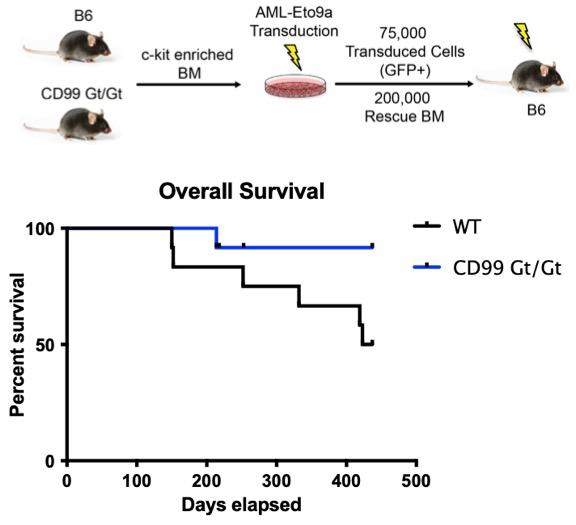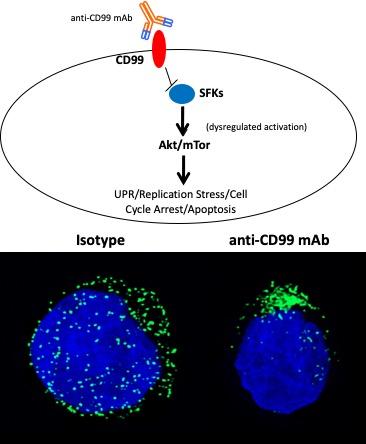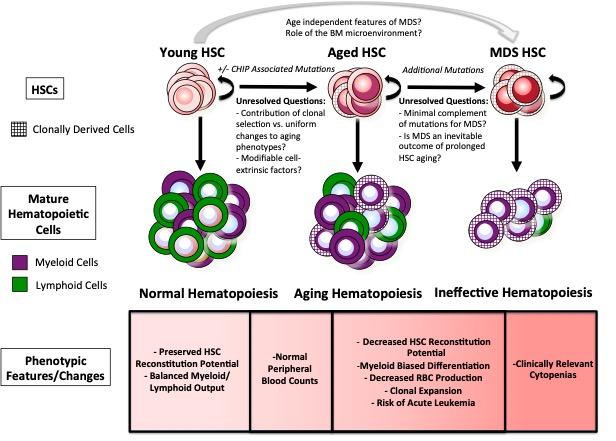The Chung Lab is based in the Division of Hematology/Oncology in the Department of Internal Medicine and the Children’s Research Institute at UT Southwestern in Dallas, Texas. The lab uses primary human specimens, patient-derived xenograft models, and genetically engineered mouse models to study the molecular mechanisms underlying disease stem cell function in hematologic malignancies.

We previously showed that CD99 is a novel cell surface marker and therapeutic target highly expressed on disease stem cells in acute myeloid leukemia (AML) and myelodysplastic syndromes (MDS). We have gone on to demonstrate that CD99 promotes stem cell self-renewal in part by regulating protein synthesis, with preliminary data suggesting that it may be upregulated in a genotype and cell context-specific manner during disease transformation.
In ongoing work, we are utilizing genetic and retroviral models of leukemia to better understand the role of CD99 in promoting leukemogenesis, as well as to better understand the role of protein synthesis control in leukemia stem cell function.

We previously demonstrated that CD99 negatively regulates activation of the Src-family kinases (SFKs) and that cytotoxic anti-CD99 mAbs disrupt this activity, revealing rapid activation of SFKs as a novel therapeutic vulnerability in AML and MDS. In ongoing studies, we are working to identify key mediators of the interaction between CD99 and the SFKs that may also serve as therapeutic targets.
We have found that leukemia stem cells with high levels of CD99 have low levels of protein synthesis, and we are thus investigating methods to selectively deplete these cells using anti-CD99 antibodies and ribosome toxins.

Recently, somatic mutations common in MDS and AML have been observed in healthy elderly individuals, a condition termed clonal hematopoiesis. This condition, which likely arises from clonal outgrowths of mutated hematopoietic stem cells, is correlated with not only an increased risk for hematologic malignancies, but also a substantial increase in the risk for vascular disease. However, the molecular and cellular events that must occur to promote disease and/or initiate MDS and AML in the context of normal HSC aging and clonal hematopoiesis remain incompletely understood. Our lab’s goal is to study human HSCs to gain better insight into these mechanisms, utilizing novel cell surface markers that promise to allow us to prospectively isolate and functionally characterize distinct normal and diseased HSC populations.
Join Our Lab
Be part of the great impact we're having on science and medical care across the globe.The Chung Lab is looking for highly motivated individuals to pursue projects leveraging cutting-edge technologies to study in vitro and in vivo models of hematopoiesis, with extensive use of mouse models of disease and stem cell transplantation assays.